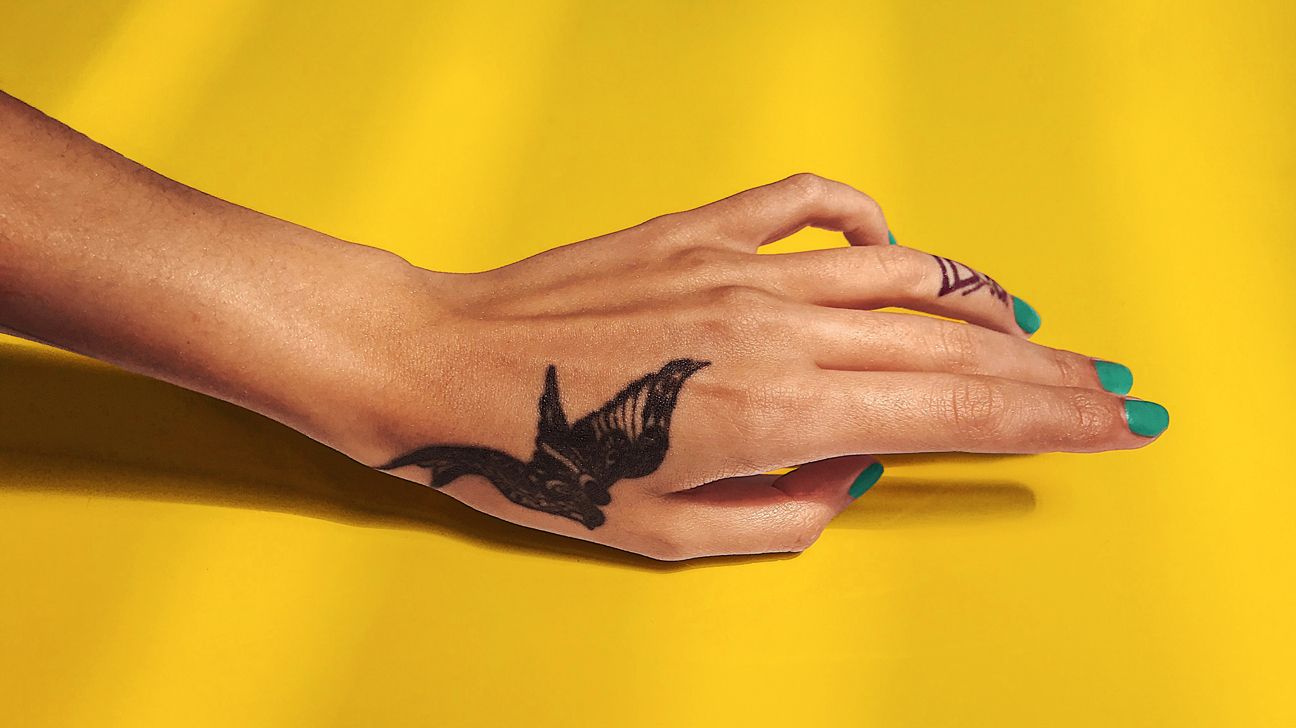If you see tattoos as a way to honor or commemorate something important to you, getting inked while you’re pregnant might be up for consideration. Except… is it safe? Here’s what you should know.
Technically, it’s possible. There aren’t any laws or official medical recommendations against getting inked when you’ve got a bun in the oven.
But just because it’s allowed doesn’t make it a great idea.
“In my practice, we only do procedures that are absolutely necessary when a woman is pregnant, and wait until the postpartum period to do an elective procedure,” explains board certified dermatologist and UCLA clinical instructor Tanya Kormeili, MD, FAAD. “Since a tattoo is an elective procedure, it should wait until after a woman gives birth to minimize the risk to both mom and baby.”
That’s assuming you’ll find a tattoo artist who’s on board — which could be challenging. “In the permanent cosmetics industry, it is the standard of care to not tattoo a pregnant woman or a woman who is breastfeeding,” says Laura Reed, OD, CPCP, FAAM, a former optometric physician who now practices cosmetic and medical tattooing.
There are some good reasons to hold off on any new ink until after giving birth. The most important? You’re more prone to infection with a baby on board.
Up to 6 percent of people get an infection from a new tattoo, and your chances of getting one during pregnancy might be even higher since your immune system isn’t working at full capacity.
A tattoo is basically a wound, and when you have broken skin, it’s always possible for viruses or bacteria to make their way in. In some cases, the ink itself could even be a source of microbial contaminants.
We’re not just talking about run-of-the-mill skin infections that get red or pus-filled. “Skin can become infected with staph or other pathogens. When you’re pregnant, you may not be able to take certain medications [to fight the infections] because they can be toxic to the growing fetus,” Kormeili explains.
Improperly sterilized needles could also put you and your baby at risk for serious illnesses like HIV or hepatitis B.
Infection also isn’t the only issue. Some tattoo inks have been found to contain heavy metals like cadmium and lead. While there’s no way to say for sure whether metals from your ink would make their way to the baby (and in what quantities), experts do know that exposure could impair a fetus’s growth and development.
Lead, for instance, interferes with the deposition of calcium into bones, potentially resulting in decreased fetal bone growth.
This potential risk doesn’t only apply when you’re pregnant, btw. It’s also theoretically possible (though not proven) for tattoo chemicals to leach into breast milk.
The fresher the tattoo, the more likely that might be to happen. So if you’re planning on breastfeeding, it might actually be worth holding off on the ink until you’ve given birth and weaned.
The practice of applying temporary henna tattoos can be traced back to ancient Egypt, and in some cultures, it’s a tradition to celebrate and bless rites of passage such as engagement, marriage, and pregnancy.
Henna is a semi-permanent vegetable-based dye that stains your skin for about a month. So if you want to do something temporary like belly art, it can be a safe alternative to a permanent tattoo.
Just make sure to steer clear of black henna. This type of henna contains a coal-tar dye called p-phenylenediamine that can cause allergic reactions, skin burns, and blisters — whether you’re pregnant or not.
Hold off on that tattoo at least until your baby is born, maybe longer if you’re planning to breastfeed.
Being pregnant puts you at higher risk for a possible infection from your tattoo, and it’s possible that the heavy metals in the ink could harm your baby’s development.


